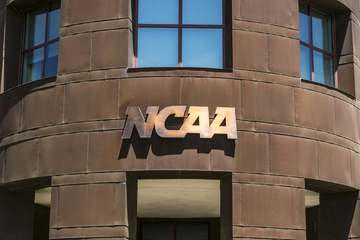

CRCLF Editorial Board, May 17, 2019, New Rochelle, New York
The issue of whether student-athletes should be paid has been an issue of debate for many years. The National Collegiate Athletic Association (“NCAA”), is a not-for-profit entity that regulates the athletic programs of more than one thousand colleges and universities in the United States and Canada. So, it is safe to presume that although the NCAA regulates the athletic sports programs of many state (and some federal) colleges and university programs, the NCAA is not a government entity or a quasi-governmental entity. However, there is in truth scarce information to accurately identify the NCAA as a public or private or quasi-governmental institution, despite the vast array of information on the NCAA’s organizational structure. There is insufficient information regarding the NCAA’s complex revenue structure despite its release of annual and complex financial reporting.
In a March 7, 2018, article, the USA Today reported that the NCAA’s revenue surpassed a billion dollars in 2017. Additionally, a review of 230 Division I Athletic Programs revealed that such schools grossed more than $10 billion in annual revenue for 2017. The schools, as is the case with the NCAA are not-for-profit institutions that spend effectively all the money they generate, but none of that money is paid to student-athletes. So, who is getting this money, if none of it is going to the student-athletes who generate the billions of dollars? This isn’t to suggest that there is something underhanded going on in the criminal sense. Rather the point is that there is more than enough money to go around and the NCAA, Universities, and Colleges, are getting billions, cashing in on their cash cow, the student-athlete. In America’s capitalist structure the student-athlete is slave labor, an indentured servant. Student-athletes’ labor is coerced in the sense that in many instances, before they may become professional athletes (i.e., earning pay), they must participate in college and university sports, effectively for free. Moreover, it is inadequately rewarded where such is for free, and the colleges and universities who benefit directly from student-athletes’ participation, make billions of dollars each year.
What makes this particularly perplexing is that excluding student-athletes from the billions of dollars they generate is contrary to traditional notions of capitalism. Moreover, the extent that the NCAA, Universities, and Colleges go, to ensure that the student-athlete is excluded from the wealth-creating revenue they generate is particularly appalling when you consider that a great deal of this revenue is generated at the expense of some of the most impoverished citizens in America and the money generated goes to privileged individuals. In this dynamic, as long as student-athletes do not get paid, the bottom line is always the same in that overall, the rich become richer; the wealthy become wealthier, those that have, get more; all simultaneously with the poor becoming poorer. The NCAA has excluded and banned student-athletes from school when they seek to avail themselves of some of the revenue they generate for the NCAA, Universities, and Colleges. In other instances, they have assisted in the criminal prosecution of those who seek to assist student-athletes in obtaining some of the revenue they generate.
Are the NCAA, Colleges, and Universities doing all this because it is the morally correct thing to do or are, they doing this because they have an economic interest in doing so?
Additionally, is it proper to use the FBI to protect the economic interests of these institutions?

1 Response to NCAA’s Billion Dollar Monopoly and Whether Student Athletes Should be Paid